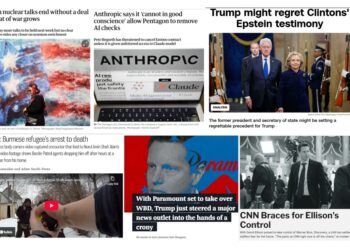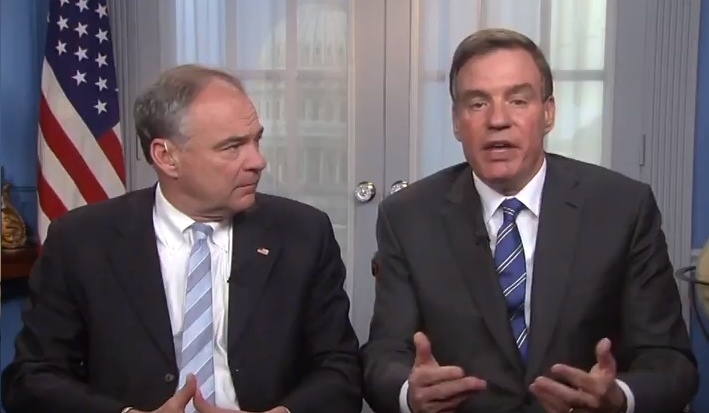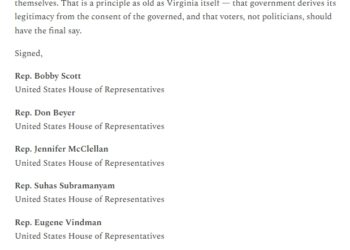in the transition to the school year. Students will arrive on Monday. I now have 192 on my roles for 6 classes, that number being held down because one is a special program with only 21. The numbers in order read 21-30-37-38-38-28. I have 39 desks, and it is possible all will be filled in some classes.
The biggest story in education is the LA Times on value-added scores of LA school teachers, the paper publishing names & picture of teachers with the scores I have been asked by several people to write on the subject here, but since I am not myself a psychometrician and there are real technical issues, I have been attempting to leave it to other people. And there is a wealth of commentary on the subject in the last few days, too much for me to have absorbed.
Perhaps I will write about that issue, or other issues that concern me. I am never unconcerned about matters affecting schools, teachers and most of all students. But this morning my reflection is also on broader issues.
So I invite you to continue reading as I offer my morning mental meanderings in the brief period before I again become fully immersed in school and students.
Much of my reflection recently has been broader than what happens in my classroom, even though as a teacher of government so much of what concerns us here is a valid topic for class discussion and exploration. I see issues of morality, ethics, human decency, economics, spirituality, as well as of politics, government, and education.
I still greatly fear a major economic collapse in this nation. There are still far too many at economic risk, despite the efforts of the administration. Yes, GM is turned around and will be making a huge IPO. But the housing sector is still struggling, because Banks are NOT lending the money necessary for many to restructure their mortgages to stay in their house. Companies are sitting on cash rather than hiring back workers. The large financial firms justify issuing bonuses to key employees even as the credit markets still remain tight and families are not able to restructure mortgages to stay in homes.
We get caught up in emotional side issues that have political implications, and politicians get scared. Is the President Muslim, many wonder. What about the Mosque which really isn’t a mosque but a community center. Combine that with the administration drawing a line on Israeli settlements and we see data from Pew that American Jews are moving away from the Democratic party, perhaps in sufficient numbers to flip some electoral races.
I live in Virginia. The Hampton Roads area is very dependent upon military spending. The decision to possible shut down the Joint Forces command might make military sense, but it and the possible cutting back on Naval personnel for the Norfolk-based 2nd fleet have now become major political issues in the state. Rep. Glenn Nye, 2nd District, was going to have trouble holding his seat in a Republican district, but had a break because of a 3rd party candidate drawing away Republican votes. Now he is in real jeopardy, particularly if a story hitting the news in the area that the President will sign off on eliminating the campaign in the next week or so is true.
Why I do mention political issues? Because how people are reacting in the midst of an electoral campaign has serious implications for the future of this nation. It is not merely the persons who will be elected and the policies they will pursue. That is an issue in every election, and this one is no different. Rather it is something more – it is disheartening to see every issue devolve to the political advantage one side or another thinks can be gained. It is the advocating for financial benefits for one state or congressional district even when that might be contrary to the national interest, to the economic security of the nation. It is the almost total lack of voices speaking to larger issues, of media covering important issues in depth to help educate the voters as to the totality of issues facing this nation, and facing the world.
My students learn that the primary purpose of political parties and campaigns is to win elections. In that sense, one can justify doing everything legal in an attempt to win. That includes changing the rules to favor one’s side. That includes winning not merely by trying to persuade people to vote for one’s candidates, but also to scare them away from voting for opponents. One may win elections by such methods, but then face a situation where the community or the nation becomes ever more ungovernable, ever more fragmented.
Those are big picture items. They are grist for the mill of classroom study and discussion. I cannot consider them without mentally wondering how I address them with my students, for after all, I am a teacher.
I am also a citizen – of my local community, my state and my nation. As a human being I am one teensy part of a teeming humanity whose words, actions, and inactions can affect all of us, not merely to the point of fomenting violence and hatred, but also to jeopardize our very existence as we see acceleration of climate change that could be catastrophic, an increase of people, economic organizations, and nations attempting to gain control of key resources in order to protect themselves in what may be a world spinning out of control on many levels – economic, political, military, religious, environmental.
We see disasters in different places, and while we respond with some generosity, we fail to learn that continuing our current ways of behavior will mean that the disasters will become more severe even were the climate change not accelerating. Cut down trees to burn wood for those living as a result of uncontrolled population growth not only leads to an acceleration of the carbon dioxide in the air (less trees for photosynthesis), it also leads to erosion, to greater flooding from the same amount of rainfall.
We are polluting the air and the waters we need to survive.
We are drawing down the underground aquifers, and seeing water sources that are not polluted becoming privatized.
We use carbon-based fuels wastefully and in a manner that means we destroy the environment first in obtaining them (eg, Mountaintop removal), next in using them (more and more paved surfaces for petroleum-based vehicles) and finally in the pollution they put into the atmosphere, the water, the ground.
Our food supplies are at risk – we use too much corn for fuel, and people starve. We move to monoculture crops and our food supplies become more vulnerable to blights and insects.
Our health is at risk – we eat too much, a diet that is unbalanced, a diet that contributes to explosions of preventable diseases and conditions, then we do not provide the medical treatment and care to address the issues.
Increasingly we become driven either by fear – which means we react viscerally to stimuli, not rationally – and/or by selfishness – we are determined to protect ourselves and those about whom we care and to hell with everyone else.
Or something possibly even worse – we cease to care. Why be concerned about the future, since we are all going to die anyhow. Let’s get ours now, while we can. Maybe we even welcome a cataclysm because of our interpretation of our own religious beliefs.
I see all this around me. And I am faced with choices, many choices.
I cannot tell others how they should think or act. I do not have that power over others, not even the students entrusted to my care.
I do have some control over my own actions, my own words. Those are choices I can make, and I must be prepared to live with the consequences of my choices. Those consequences are not merely what I experience directly, but what I cause as well for other people.
If I choose to shop at a chain that offers my lower prices, I may save myself some money. But what if those lower prices are available to me only because the workers are paid less, given fewer benefits? What if the items I purchase were made with underpaid labor, in conditions that pollute the environment?
How do we determine what is moral when we make a choice? Do we stop and consider the implications of our actions? Of course, we do many things by habit, by custom. Some might argue that were we to reflect on the consequences of all that we do, we might accomplish far less. To which I feel I must respond, is all that we accomplish a positive? Might there be some benefit to “accomplishing” less?
As a teacher I try to pose questions for my students, and when they offer their first answers, offer further questions, to enable them to realize that they can think more broadly, examine more deeply. I cannot force them to do either. I can invite, I can challenge.
If my instruction is meaningful, I will be able to illustrate by my own words and actions. I will not be consistent, I will fail at times to live up to my own standards. But if I am willing to be reflective, to be honest, I can begin to make a difference in my own life by the choices I make. I can begin to act in a way that demonstrates my awareness of my broader connections, not merely to those with whom I am connected by blood or friendship or common experience or common geography.
I wonder how we can reach out beyond our fears if we cannot identify our fears and be able to see and understand the fears of others.
I have questions. I ask these questions of myself. Sometimes I stop and reflect like this, and this morning to call this a mental meandering is to use a charitable description. It is more than disorganized, and it may be confusing to follow whatever thoughts may lie behind these words.
I actually am less verbal than I am intuitive, yet words are the common currency of most of our exchanges with others, particularly those with whom we are not face to face, so I feel I must struggle through trying to express and to understand even when the words are insufficient, or even a barrier.
I teach because I want to learn. Each encounter with another human is a chance for me to grow, if I do not recoil in fear or lash out in anger. The process of wondering how I help my students make sense of the things happening around them also requires me to learn.
I will realize things I can do but I should not do – merely because i can, even if they are not illegal, is insufficient justification. That realization is for me the first step towards meaningful morality. I do not know how else to put it. It is the recognition that there is something more required, at least for me.
A further realization comes quickly thereupon, that I am and always will be dependent upon others for things that are either necessary or at least of major importance. I am connected, sometimes with those about whom I know nothing and whom i will never meet. Their actions affect me, as mine do them.
I called this a pause. It is some time in which I have tried to reflect on the world around me, on my own fears, on the fears and anger I perceive as I watch the news or observe the people here and elsewhere through whatever media and filters that help to connect me even as they may also obscure my understanding.
I have fears. I have doubts. All I can do is acknowledge them, remove their power over me by naming them, and move on. Not to ignore either fear or doubt, but to attempt to overcome by doing what I know is within my power, and attempting things of which I am not yet sure, if I think they may make a positive difference.
So it will be when I enter my classroom on Monday, when I encounter almost 200 young people I largely do not yet know.
And now? My cats want attention. I have tasks of ordinary importance, such as lawn and laundry and cleaning and shopping. Along the way there will be more reflection. There will also be moments of stillness, or of listening to music, or stopping to watch the mockingbirds nesting on our property. Perhaps it will be standing in line at the market observing without judgment the people around me and the interactions among them. It will be remembering to smile, to not be in such a rush that I begin to view others as obstacles to my plan. It will be to allow myself to grow by being open.
I fear. I doubt. And I go on.
What about you?
Peace.

![[UPDATED with Official Announcement] Audio: VA Del. Dan Helmer Says He’s Running for Congress in the Newly Drawn VA07, Has “the endorsement of 40 [House of Delegates] colleagues”](https://bluevirginia.us/wp-content/uploads/2026/02/helmermontage.jpg)
















